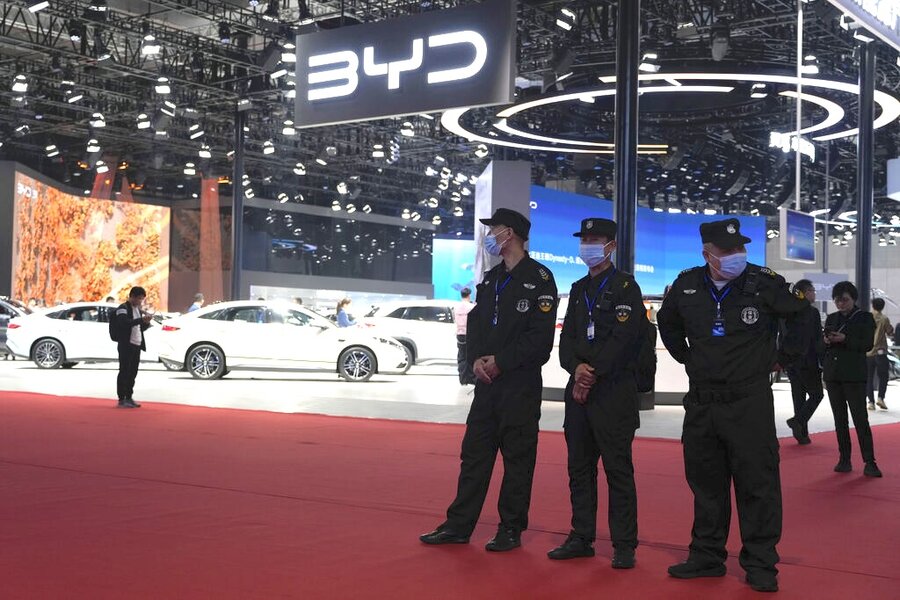World
China Confronts Deflation: Economic Mindset Faces Major Shift

China’s ruling party is facing significant economic challenges as deflationary pressures mount, prompting a reevaluation of its longstanding economic strategies. The recent plunge in prices for electric vehicles (EVs), notably highlighted by the leading manufacturer BYD (Build Your Dreams) offering a model for approximately $8,000, raised eyebrows regarding the sustainability of such low pricing amidst true production costs.
In a broader context, U.S. Treasury Secretary Scott Bessent remarked that China’s economy, now the world’s second-largest, is “the most unbalanced” in history. His statement reflects international concerns that China could resort to exporting goods at artificially low prices, potentially destabilizing global trade and prompting a rise in protectionist measures worldwide.
The implications of these economic realities are not lost on Chinese authorities. Recently, the Chinese Communist Party acknowledged that excessive government incentives in key industries such as solar panels, batteries, and electric vehicles have contributed to market distortions. These distortions have resulted in excess production capacity and aggressive price competition, which are now causing alarm within the ruling party.
The party’s leaders are particularly concerned about how these economic dynamics may hinder private investment in research and development, jeopardizing China’s ambition to emerge as a leader in innovation. The combination of falling prices and declining property values has led to a phenomenon known in Mandarin as neijuan, or “turning inward,” which signifies a broader economic contraction.
In June 2025, producer prices in China fell by 3.6% compared to the previous year, marking the most significant decline in more than two years. An editorial in the People’s Daily underscored the seriousness of the situation, stating, “Neijuan directly affects wage levels, government tax revenues, investment confidence and the whole economy.”
The psychological aspect of deflation, where consumer sentiment drives expectations of further price declines, can create a vicious cycle. Consumers may postpone purchases, anticipating lower prices, which in turn leads businesses to reduce output and refrain from making new investments. This sentiment is compounded by the expectation of ongoing government subsidies, pushing manufacturers to increase production despite declining demand.
Economist Kok How Lee from Singapore noted that China’s overcapacity issues extend beyond mere manufacturing and delve into a mindset problem. In response, the Chinese government is working to recalibrate this mindset by reducing subsidies, encouraging mergers among companies, and addressing the pressure larger manufacturers place on smaller suppliers to lower their prices.
Party leader Xi Jinping has described this corrective approach as “the orderly exit of outdated production capacity.” Some economists posit that if these strategies are effectively implemented, China could potentially overcome deflationary pressures by 2026.
As the global community closely monitors China’s economic evolution, the outcomes of this shift in policy and mentality may have far-reaching implications for international markets. The world is watching closely as China navigates these turbulent economic waters, with many hoping for a balanced and sustainable recovery.
-

 Top Stories3 months ago
Top Stories3 months agoTributes Surge for 9-Year-Old Leon Briody After Cancer Battle
-

 Entertainment4 months ago
Entertainment4 months agoAimee Osbourne Joins Family for Emotional Tribute to Ozzy
-

 Politics4 months ago
Politics4 months agoDanny Healy-Rae Considers Complaint After Altercation with Garda
-

 Top Stories4 months ago
Top Stories4 months agoIreland Enjoys Summer Heat as Hurricane Erin Approaches Atlantic
-

 World5 months ago
World5 months agoHawaii Commemorates 80 Years Since Hiroshima Bombing with Ceremony
-

 Top Stories3 months ago
Top Stories3 months agoNewcastle West Woman Patricia Foley Found Safe After Urgent Search
-

 Top Stories5 months ago
Top Stories5 months agoFianna Fáil TDs Urgently Consider Maire Geoghegan-Quinn for Presidency
-

 World5 months ago
World5 months agoCouple Convicted of Murdering Two-Year-Old Grandson in Wales
-

 World5 months ago
World5 months agoGaza Aid Distribution Tragedy: 20 Killed Amid Ongoing Violence
-

 World5 months ago
World5 months agoAristocrat Constance Marten and Partner Convicted of Infant Murder
-

 Top Stories4 months ago
Top Stories4 months agoClimbing Errigal: A Must-Do Summer Adventure in Donegal
-

 Top Stories4 months ago
Top Stories4 months agoHike Donegal’s Errigal Mountain NOW for Unforgettable Summer Views









